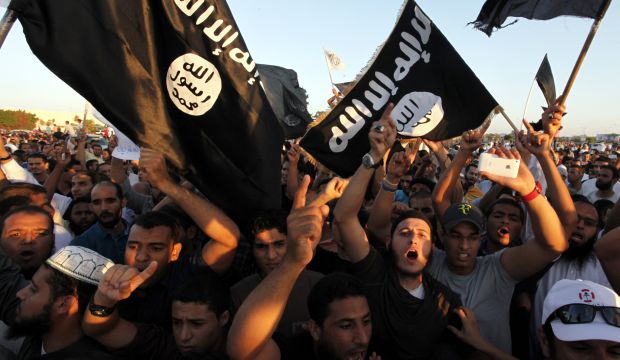
Libyan followers of Islamist militias hold a demonstration in Benghazi, Libya, on September 21, 2012.
(AP Photo/Mohammad Hannon, File)
Speaking exclusively to Asharq Al-Awsat, Ministry of Defense spokesman Belhasan Al-Waslati played down the potential use of Tunisia’s airspace by the West to intervene militarily in Libya. The official pointed out that previous air strikes had taken place in Libya, especially during the popular uprising that toppled strongman Muammar Gaddafi, without Tunis being approached for help.
US and NATO military bases in the Mediterranean and Europe are capable of directing those strikes, the spokesman maintained.
The Tunisian government last week shut down the two main border crossings with Libya to contain potential threats from its southern border and raised the level of military and security alert across the country during presidential elections that were held on Sunday.
Tunisia has set up a military buffer zone to secure the border area near Libya, the defense spokesman added.
Last week, the Tunisian council of ministers approved a draft law to establish a military intelligence agency in a step toward developing efforts to counter growing terror threats in the region.
According to the official, the new agency would help the general directorate of military intelligence contain terrorist threats against not only individuals but also vital government and military installations.
In the past the interior ministry collected and processed intelligence while the military took on the task of protecting individuals.
The intelligence agency is expected to be launched next year.

Trackbacks/Pingbacks